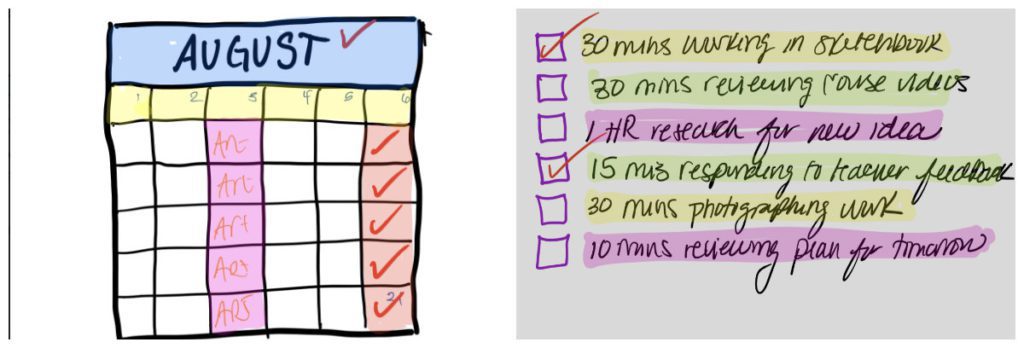How to Help Students Plan

In the field of art education, there is an ongoing debate as to whether due dates are a good or bad thing. I’ve always fallen somewhere in the middle. Meaning that students do need due dates, but that how those due dates are determined can be flexible. Sometimes the students may help to set the due dates. Or for example, students in my AP classes have 3 late passes each semester, allowing them to ask for extra time on 3 assignments without losing any points.
Due dates are important for a few reasons:
- It is rare in life that we can just do things whenever we want
- They can serve as a form of motivation to keep working, even when we don’t totally want to
- They provide a sense of structure that helps us to better plan for our goals.
In the book, Change Your World, The Science of Resilience and the True Path to Success, Michael Ungar, talks about our need for structure, especially when going through a crisis.
” Rules, routines, and expectations make our lives predictable and secure. This is why children need bedtimes and chartered accountants need job security if both are to weather personal challenges. This is why students do better with clearly defined deadlines and healthy expectations from parents that they pass their exams. This is why we live longer when someone needs us to get out of bed in the morning. Without these structures, people go to incredible lengths to make their lives predictable. They will check themselves into detox; they will marry the first suitable mate that comes along, or they will do something so incredibly stupid that lands them in jail.”
If we want students to push boundaries and break structures in their artwork, we need to provide predictably elsewhere. This is also why adding constraints to art making is often helpful. The constraints add predictability to something that is otherwise very unpredictable.
Before you think that I’m advocating for not giving students any choice or freedom, let me continue.
” Of course, all those warnings about too much of a good thing apply to structure, as well. Overkill will suffocate resilience and become just as burdensome as anarchy. Over protective parenting for example, can be highly dysfunctional. The parent who protects her child from every psychological and physical bump and bruise actually undermines her child’s resilience. Anxiety disorders are among the leading reasons for children’s emergency room visists and hospitalizations, and they are crippling university students by the tens of thousands. We are witnessing the failure of an entire generation because of the obsessive control of parents who think they can ensure a child’s future by controlling every moment of childhood…. The first speed bump, the first teacher or boss who says, ” you need to perform better,” will produce an emotional crisis of epic proportions.”
What I’m advocating for and working to do with my students, is to set some guidelines and teach them how to set their own.
- teach them how to develop constraints on their work
- teach them how to create a weekly schedule by setting their own deadlines